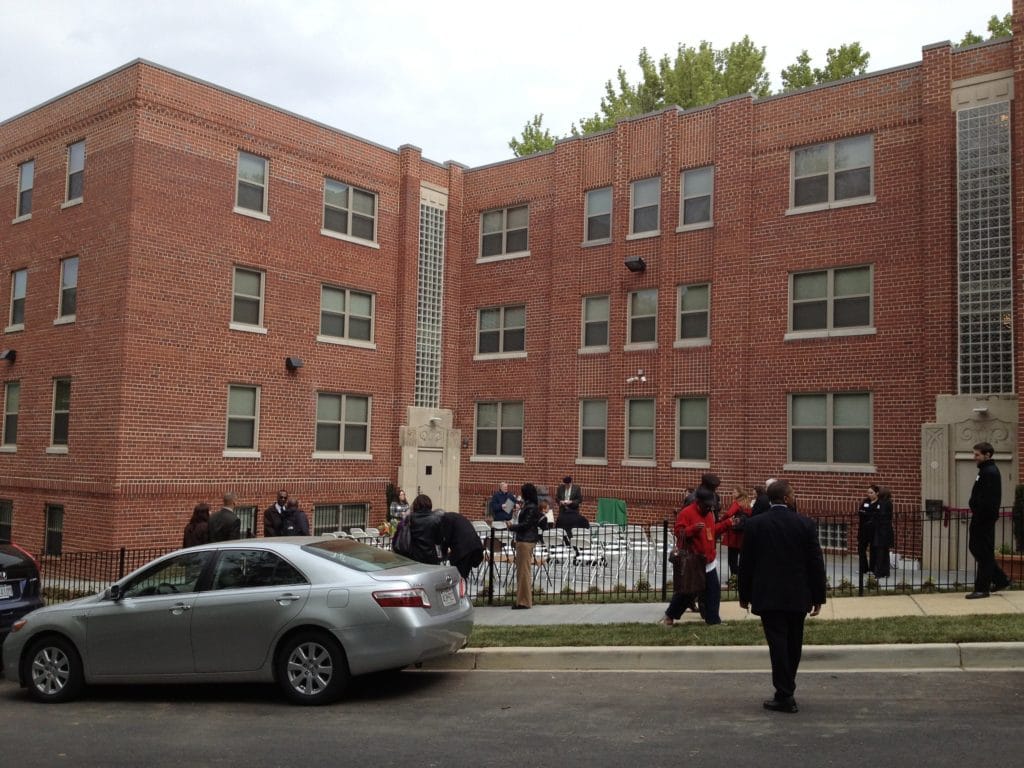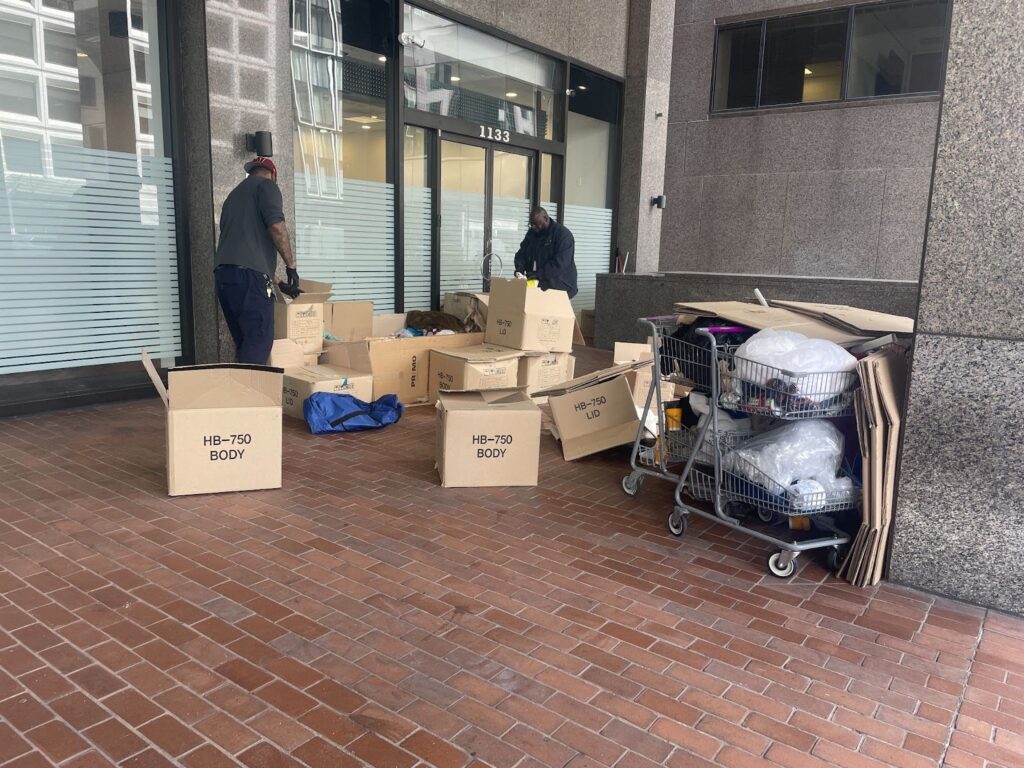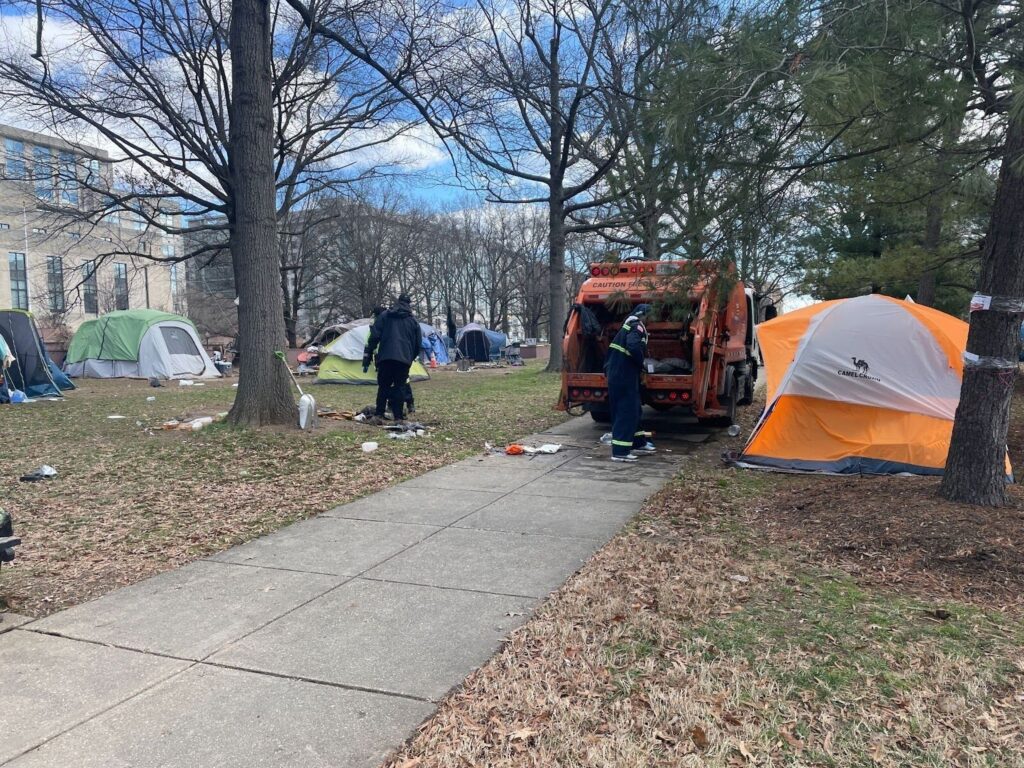This article was featured in the April 15 digital-only edition of Street Sense. Until it is safe to resume person-to-person sales, you’ll always be able to find the current digital-only edition at streetsensemedia.org/Digital. Thank you for reading! Please continue to support our vendors through our mobile app (streetsensemedia.org/App).
As cases of COVID-19 were rapidly increasing last month, the D.C. Department of Human Services notified housing providers that it was temporarily suspending the Coordinated Assessment and Housing Placement (CAHP) program, which is the District’s primary tool for housing homeless residents.
DHS Director Laura Zeilinger said that continuing CAHP was “not realistic” given the series of in-person meetings and property visits involved in assessing, matching, and housing individuals through the program.
The system relies on a detailed assessment interview with people seeking housing that determines how vulnerable they are compared to others seeking housing and what their individual needs are. When space in a housing program opens, the services that placement provides are compared to the assessment data. Service-provider staff then meet to discuss the placement options together and decide on the final “match.”
“Right now we are not in a place where being out in the community doing housing searches, applications, inspections, voucher briefings, and CAHP meetings can be done in a way that is safe and protects people,” she said.

For service providers like Pathways to Housing D.C., which fill placements in its ‘housing first’ programs through CAHP, the suspension prevents Pathways from housing any new clients who weren’t already matched before the referral system was paused. Pathways does not accept direct referrals for its Housing First programs, per its website. As the coordinated entry model was being adopted in D.C., city officials spent significant time asking all housing providers to move away from direct referrals and participate in CAHP.
Individuals who were already matched prior to the suspension of CAHP have still been able to secure housing. The program’s suspension was announced by DHS on March 23 during a D.C. Interagency Council on Homelessness (ICH) conference call. That week, Pathways housed three people who had previously been matched to the program, according to Executive Director Christy Respress.
As of March 30, a total of 31 individuals had either been housed or were waiting to move into Pathways’ permanent supportive housing and veterans housing programs in D.C., or its housing program in Montgomery County, Maryland.
[Read more: Five shelter residents have tested positive for COVID-19, DHS says]
On March 19, just before D.C. paused housing referrals, U.S. Rep. Pramila Jayapal (D-WA) introduced the Human Right to Housing Act of 2020 to Congress as a direct response to the COVID-19 pandemic. It was co-sponsored by seven fellow House Democrats and includes more than $300 billion to invest in housing infrastructure and assistance over the next decade and $10 billion over that period for FEMA emergency food and shelter grants.
“The homelessness crisis in America predates the COVID-19 pandemic, but the consequences of federal disinvestment in critical housing infrastructure and supportive services have never been clearer, Jayapal said in a press release. “The experience of homelessness is not a moral failure of individuals, but a structural failing on the part of a society that has refused to prioritize the needs of the most vulnerable, including safe and affordable housing.”
[Read more: National Alliance to End Homelessness recommends housing now to avoid a backlog when the pandemic ends]
A similar conversation has been inching forward in the District for years. In 1989, local organizers including the late Mitch Snyder led the “Housing Now!” demonstration that drew the participation of Coretta Scott King, Jesse Jackson, Stevie Wonder, and others. In 2008, the D.C. Council passed a ceremonial resolution declaring the District would strive to provide all the rights outlined in the United Nations’ 1948 universal declaration human rights, which includes safe housing for all.
Earlier this year, as the ICH finalized a major update to the city’s plan to end homelessness, homeless and formerly homeless members of the ICH recommended the plan include goals to advance housing as a right in D.C. and to serve as a national model. Those goals were approved in the final plan at a March 10 ICH meeting, which now awaits the mayor’s approval.
The suspension of CAHP referrals, while understandable for the time being, comes at a time when “we actually need to accelerate housing placements and figure out creative ways to move people into housing,” Respress said. The possible solutions Respress suggested include having virtual apartment showings and teleconference meetings with property managers and service providers.
In a March 30 interview, Zeilinger cast doubt on whether the lengthy referral process could be replicated virtually. If the stay-at-home order signed by Mayor Muriel Bowser is extended for “a prolonged period beyond a matter of days,” then DHS would look at ways to resume the program virtually, she said.
Zeilinger did not respond to a request for comment on whether DHS is now considering restarting CAHP referrals virtually.
Bowser’s order, which was announced on the same day as Zeilinger’s interview with Street Sense Media, is currently in effect until April 24. An announcement on whether school and business closures will extend past that date is expected to be made this Friday.








